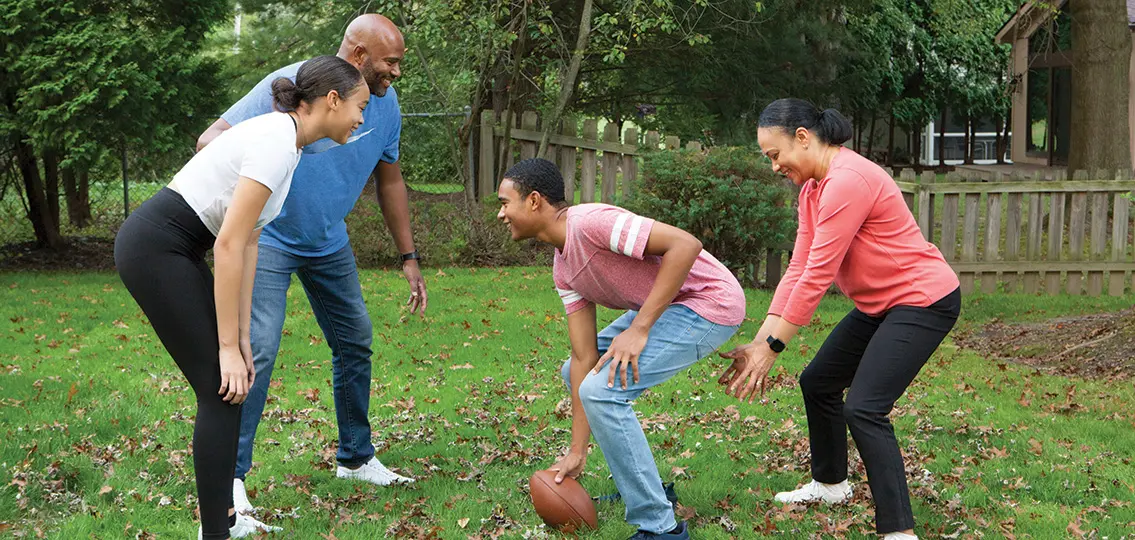Studies say parents’ happiness is a real struggle when their kids are adolescents.
Sonja Lyubomirsky, a psychology professor at the University of California Riverside, says parents experience the most negative emotions when children are under five and when they become teenagers. A 2009 study in the Journal of Marriage and Family found that marital satisfaction decreased when a couple’s children became adolescents.

The parenting happiness gap is real! But are parents of teens doomed to be miserable?
In her book The How of Happiness, Lyubomirsky argues that we can control up to 40 percent of what makes us happy. That means parents’ happiness really can be a choice sometimes. With the help of expert advice, we can take small steps each day to proactively combat the challenges of parenting teens.
9 Small Steps to Increase Parents’ Happiness:
1. Do something you love every day.
When I had my first baby, I joined a new moms’ group at a local hospital. The nurse in charge gave me the best mom advice ever: figure out what makes you happy, and do that thing every day. It was good advice for a new mom, and it’s good advice for moms of teenagers. Doing something I love helps me feel confident and connected to myself, and those feelings help me weather the emotional roller coaster that is my life.
2. Get physical.
It’s well documented that exercise improves your mental and emotional health. As Elle Woods said in Legally Blonde, “Exercise gives you endorphins. Endorphins make you happy.” Science is on Elle’s side. A recent University of Vermont study found that 20 minutes of exercise can improve your mood for hours.
3. Connect with a friend.
A study published in Personality and Social Psychology Bulletin found that interactions with good friends contribute to increased happiness. Although you might not have time to meet a friend for lunch, you can find small ways to connect, by talking, by texting, or even through social media. Friends have been important to me throughout the parenting journey but, now that my kids are older, I depend even more on the support they provide.
4. Say no.
We don’t have to be all things to all people. It’s okay to say no sometimes. And saying no to some of the family chores gives your teens a chance to learn a life skill. Saying no means that you value your time and offers the opportunity to engage in other activities—like a good night’s sleep!—that energize you.
5. Say yes.
Take the time to embrace new adventures. Stress can contribute to inflammation in the body, which is linked to chronic and debilitating diseases. According to a study conducted by Jennifer Stellar of the University of Toronto, the awe of a new experience can have anti-inflammatory effects on the body. Paul Piff, Assistant Professor of Psychological Science at the University of California, Berkeley, has found that feeling awe—even everyday awe—can help us take the focus away from ourselves and engage in more prosocial behaviors, which ultimately make us happier (see #3).
6. Be kind to your partner.
Think of small acts of kindness you can do for your partner, whether that means making coffee in the morning or washing the car. Harry Reis, Professor of Psychology at the University of Rochester, and his team found that engaging in these kinds of compassionate acts towards a spouse contributed to emotional well-being for both the donor and the recipient. In his study, the donor experienced even stronger benefits than the recipient.
7. Make whoopee.
Many studies have, not surprisingly, linked sex with happiness. Recent research has suggested that the sex-happiness link is connected to the affection and cuddling that happens with sex and helps couples bond. The many health benefits of sex, including improved sleep and pain relief, also contribute to emotional well-being.
8. Watch something funny.
Not only does laughing burn calories (up to 40 for 10-15 minutes of laughter!), studies show that it leads to decreased stress. So, don’t feel guilty about spending a few minutes watching funny YouTube videos! If you’re feeling adventurous, you could try Laughter Yoga, a practice developed by family practice physician Dr. Madan Kataria.
9. Say thanks.
In their study, Dr. Robert A. Emmons of the University of California, Davis, and Dr. Michael E. McCullough of the University of Miami, found that writing about things they were grateful for helped people feel more positive about their lives. Other studies have found that expressing gratitude towards another person can improve the relationship and make you happier.

So, go ahead and give thanks for all the good things in your life, even those sometimes-infuriating teens who know just how to push your buttons.




